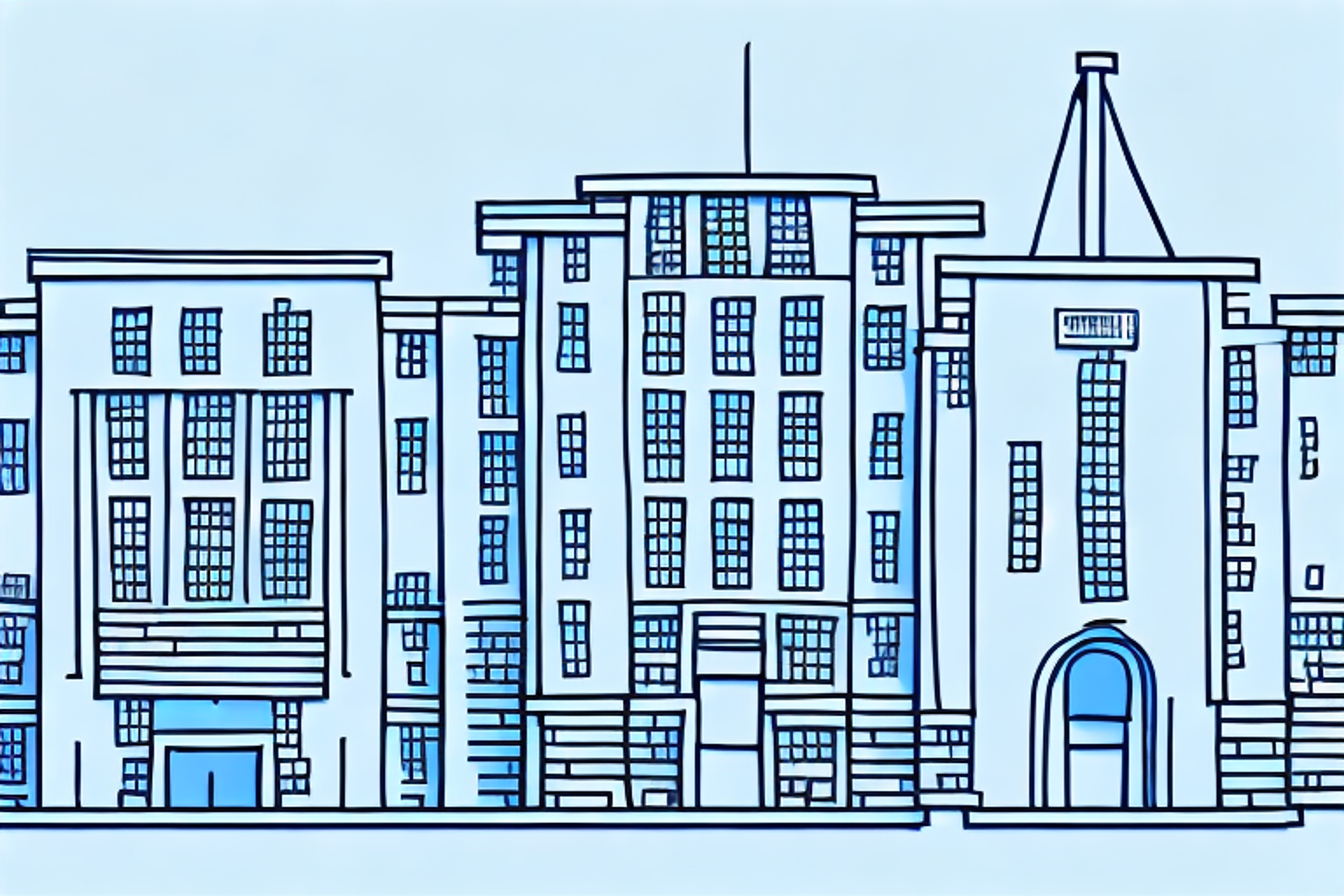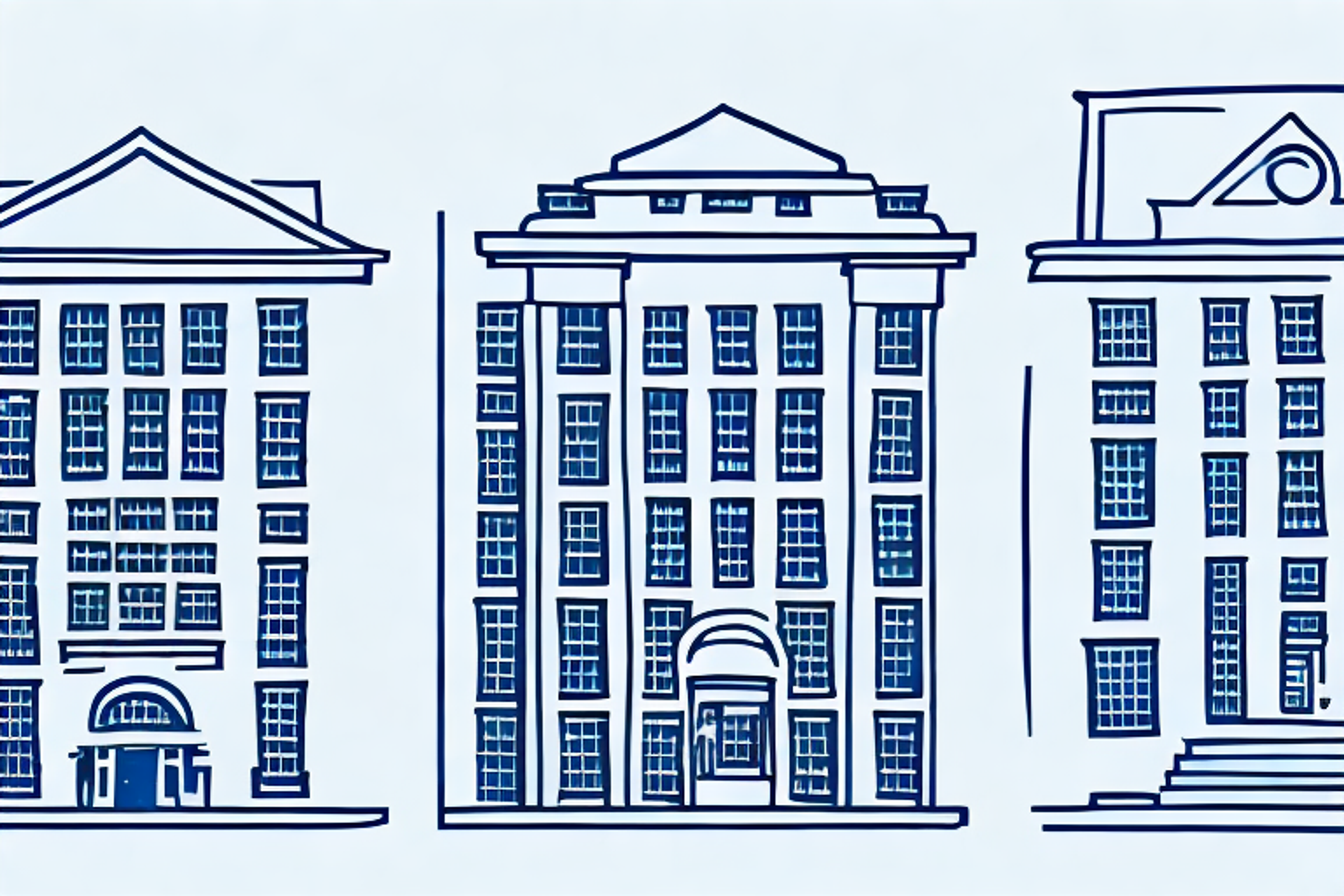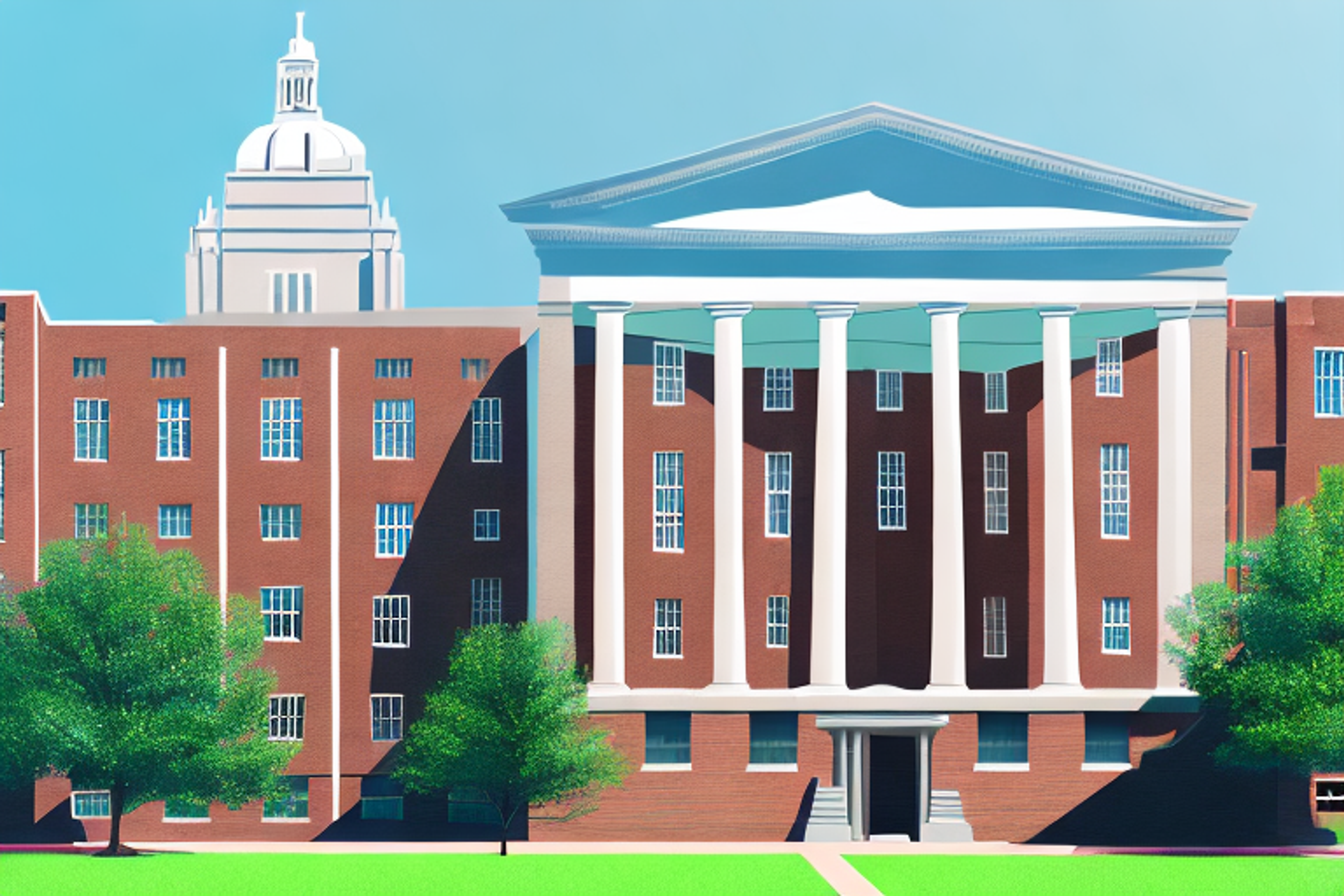Columbia Law School Vs. University of Pennsylvania Carey Law School: An In-Depth Comparison
If you're considering law school, you'll want to read this in-depth comparison between Columbia Law School and University of Pennsylvania Carey Law School.
Posted March 6, 2025

Table of Contents
Free Event

Featuring Indrani S.
Law School Admissions: What to do when you are waitlisted
Starting Tuesday, April 8
11:30 PM UTC · 60 minutes

Featuring Indrani S.
Choosing a law school can be a daunting task given the wide range of options available. In this article, we will provide you with an in-depth comparison of two Ivy League law schools: Columbia Law School and the University of Pennsylvania Carey Law School. We will discuss the key factors that you should consider when selecting a law school and how these two institutions stack up against each other.
Location: Where are the schools located?
Columbia Law School is located in New York City, which is well-known for its vibrant legal and cultural scene. The University of Pennsylvania Carey Law School is located in Philadelphia, which is known for its historical significance and burgeoning economy. Both cities offer a rich array of opportunities for students and are conveniently located near some of the country’s largest financial and legal hubs.
In addition to their prime locations, both Columbia Law School and the University of Pennsylvania Carey Law School have extensive networks of alumni who are leaders in the legal profession. These alumni networks provide students with valuable connections and opportunities for mentorship and career advancement.
Furthermore, both schools have state-of-the-art facilities and resources to support their students’ academic and professional development. From cutting-edge research centers to extensive libraries and career services, students at Columbia Law School and the University of Pennsylvania Carey Law School have access to everything they need to succeed in their legal careers.
History: A brief history of both schools
Columbia Law School was founded in 1858 and is widely regarded as one of the most prestigious law schools in the country. The University of Pennsylvania Carey Law School, which was founded in 1790, is the oldest law school in the country. Both schools have a rich history of producing accomplished graduates who have gone on to make significant contributions in the legal field.
Columbia Law School has a long-standing tradition of academic excellence and has consistently been ranked among the top law schools in the United States. The school has produced numerous notable alumni, including three United States Presidents, 10 Justices of the Supreme Court, and many prominent legal scholars and practitioners.
The University of Pennsylvania Carey Law School has a unique history, having been founded by Benjamin Franklin as part of the University of Pennsylvania. The school has a strong focus on interdisciplinary education and offers joint degree programs with other schools at the university. Many of its graduates have gone on to become leaders in government, business, and academia.
Admissions: What are the admission requirements for both schools?
Admission to both Columbia Law School and the University of Pennsylvania Carey Law School is highly competitive. Both schools require applicants to submit a personal statement, transcripts, letters of recommendation, and a standardized test score (most commonly the LSAT). Columbia Law School gives equal weight to each component of the application, while the University of Pennsylvania Carey Law School emphasizes academic achievement and the LSAT score.
In addition to the required components of the application, both schools also consider extracurricular activities, work experience, and community involvement. Columbia Law School values diversity and encourages applicants from a variety of backgrounds to apply. The University of Pennsylvania Carey Law School also offers a binding early decision option for applicants who are certain that they want to attend the school.
Curriculum: How do the curriculums compare?
The curriculums at both schools are rigorous and comprehensive, with a focus on analytical and critical thinking skills. Columbia Law School offers a broad range of courses in legal theory, doctrine, and practice with a strong emphasis on corporate law and intellectual property law. The University of Pennsylvania Carey Law School offers an interdisciplinary approach with a focus on public interest, business, and regulatory law. Both schools offer a wealth of opportunities for practical experience, including clinics, simulations, and externships.
However, there are some differences in the curriculums of the two schools. Columbia Law School places a greater emphasis on traditional legal education, while the University of Pennsylvania Carey Law School offers more opportunities for interdisciplinary study. Additionally, Columbia Law School has a larger number of required courses, while the University of Pennsylvania Carey Law School allows for more flexibility in course selection. Ultimately, both schools provide a strong foundation in legal education and prepare students for successful careers in the legal field.
Faculty: Who teaches at each school?
Columbia Law School and the University of Pennsylvania Carey Law School are home to some of the most accomplished legal scholars and practitioners in the country. Both schools have a diverse faculty with expertise in various legal fields, including constitutional law, administrative law, and international law. Both schools also offer opportunities for students to work closely with faculty on research projects and publications.
Additionally, Columbia Law School and the University of Pennsylvania Carey Law School have a number of adjunct professors who bring real-world experience to the classroom. These adjuncts are often practicing attorneys or judges who can provide valuable insights into the legal profession. Students at both schools also have access to visiting professors from other institutions, further expanding the range of expertise available to them.
Reputation: How do employers view graduates from each school?
Graduates from both Columbia Law School and the University of Pennsylvania Carey Law School are highly regarded by employers in the legal field. Both schools have a reputation for producing graduates who are well-prepared for the demands of the profession.
However, there are some differences in the way employers view graduates from each school. Columbia Law School is often seen as more prestigious and selective, which can give its graduates an edge in certain job markets. On the other hand, the University of Pennsylvania Carey Law School has a strong focus on practical skills and experiential learning, which can make its graduates particularly attractive to employers who value hands-on experience.
It's also worth noting that both schools have strong alumni networks, which can be a valuable resource for graduates as they navigate their careers. Columbia Law School has a particularly active and influential alumni community, with graduates working in a wide range of legal fields and industries. The University of Pennsylvania Carey Law School also has a strong alumni network, with graduates working in areas such as corporate law, public interest law, and government service.
Cost of Attendance: How much does it cost to attend each school?
Columbia Law School and the University of Pennsylvania Carey Law School are expensive institutions to attend. The cost of attendance for both schools includes tuition, fees, and living expenses. Columbia Law School charges $72,456 per year for tuition and fees, while the University of Pennsylvania Carey Law School charges $70,416 per year for tuition and fees.
However, both schools offer generous financial aid packages to help offset the cost of attendance. Columbia Law School provides need-based grants, merit-based scholarships, and federal loans to eligible students. The University of Pennsylvania Carey Law School also offers a variety of financial aid options, including need-based grants, merit-based scholarships, and federal work-study programs. It is important to research and apply for financial aid early in the application process to maximize your chances of receiving assistance.
Financial Aid/Scholarships: What financial aid and scholarships are available at each school?
Both Columbia Law School and the University of Pennsylvania Carey Law School offer various forms of financial aid and scholarships to help students cover the cost of attendance. These may include need-based grants, merit-based scholarships, loans, and work-study programs. It is important to research the financial aid options available to you and to apply early for the best chance of receiving assistance.
Additionally, both schools offer specialized scholarships for students with specific interests or backgrounds. For example, Columbia Law School offers the Human Rights LL.M. Fellowship for students interested in pursuing human rights law, while the University of Pennsylvania Carey Law School offers the Toll Public Interest Center Scholarship for students committed to public interest work. It is important to research these specialized scholarships and to apply for them if you meet the eligibility criteria.
Student Life: What is campus life like at both schools?
Both Columbia Law School and the University of Pennsylvania Carey Law School offer a vibrant and engaging campus life. These schools have active student organizations, journals, moot court and mock trial teams, and a range of social and cultural events throughout the year. Additionally, both schools are located in close proximity to a wide range of cultural attractions, entertainment venues, and dining options.
Bar Exam Pass Rates: How do graduates from each school perform on the bar exam?
Graduates from Columbia Law School and the University of Pennsylvania Carey Law School have consistently performed well on bar exams. Both schools have a high pass rate and a reputation for producing graduates who are well-prepared for the bar exam.
Career Prospects: What career opportunities are available to graduates from both schools?
Graduates from both Columbia Law School and the University of Pennsylvania Carey Law School have a wide range of career opportunities available to them. Both schools have excellent career services offices that work with students to identify and pursue their career goals. Graduates of these schools have gone on to take leadership positions in law firms, government agencies, public interest organizations, and academia.
Alumni Network: How active and supportive is the alumni network for each school?
The alumni networks of both Columbia Law School and the University of Pennsylvania Carey Law School are active and supportive. These networks provide valuable resources and opportunities for networking, mentorship, and career development. Both schools have a strong reputation for producing graduates who are actively engaged in the legal profession and who give back to their communities.
Extracurricular Activities: What extracurricular activities are available to students at each school?
Both Columbia Law School and the University of Pennsylvania Carey Law School offer a range of extracurricular activities to their students. These may include student organizations, moot court and mock trial teams, journals and publications, and a wide range of community service and pro bono opportunities. These activities provide valuable opportunities for students to develop their skills, explore their interests, and connect with their peers.
Facilities/Resources: What facilities and resources are available to students at both schools?
Columbia Law School and the University of Pennsylvania Carey Law School both offer state-of-the-art facilities and resources to their students. These may include extensive library collections, technology and research resources, clinics and simulation labs, and a range of support services for academic and personal needs. Both schools are committed to providing a safe, inclusive, and supportive learning environment for all students.
In conclusion, the decision to choose between Columbia Law School and the University of Pennsylvania Carey Law School should be based on a careful consideration of the factors that matter most to you. Both schools offer excellent legal education programs, and it is up to you to decide which one offers the best fit for your needs and aspirations.











